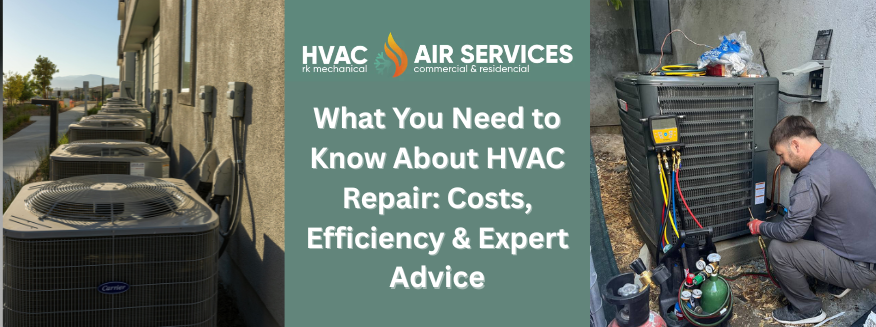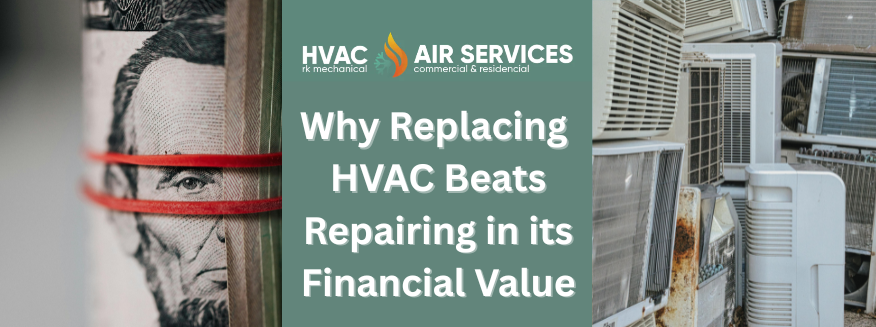Living in California, where energy costs can be high and environmental sustainability is a priority, choosing an energy efficient HVAC system for your home is a wise investment.
Listen To This Podcast On The Same Topic:
Or read more…
Not only does an energy-efficient HVAC system lowers your monthly utility bills, but it also helps reduce your carbon footprint while maintaining optimal indoor comfort. This guide will walk you through everything you need to know about selecting the best energy-efficient HVAC system and ensuring a seamless HVAC installation process.
Why Choose an Energy-Efficient HVAC System?
Energy-efficient HVAC systems are designed to consume less energy while delivering superior heating and cooling performance. Here are the key benefits:
- Lower Energy Bills: Energy-efficient systems use advanced technology to provide heating and cooling with minimal energy consumption.
- Enhanced Comfort: These systems offer consistent temperatures, better airflow, and improved humidity control.
- Environmental Benefits: Reduced energy consumption translates to a smaller carbon footprint, contributing to a healthier planet.
- Long-Term Savings: Though the upfront cost may be higher, energy-efficient HVAC systems often have a longer lifespan and lower maintenance costs.
- Increased Home Value: Homes equipped with energy-efficient HVAC systems are more appealing to buyers, offering a higher resale value.
Factors to Consider When Choosing an Energy-Efficient HVAC System
Selecting the right HVAC system requires careful consideration of several factors. Here’s what to keep in mind:
1. Energy Efficiency Ratings
When evaluating HVAC systems, look for key efficiency ratings:
- SEER (Seasonal Energy Efficiency Ratio): Indicates the cooling efficiency. A higher SEER rating means better energy efficiency.
- AFUE (Annual Fuel Utilization Efficiency): Applies to furnaces and measures heating efficiency. Look for models with an AFUE of 90% or higher.
- HSPF (Heating Seasonal Performance Factor): Relevant for heat pumps, measuring heating efficiency. A higher HSPF indicates greater efficiency.
2. Proper Sizing
Choosing the right size HVAC system is crucial. An undersized system will struggle to maintain comfort, while an oversized system can waste energy and increase costs. A professional HVAC installation technician can perform a load calculation to determine the appropriate system size for your home.
3. Type of HVAC System
Consider the type of HVAC system that best suits your home’s needs:
- Central Air Systems: Ideal for larger homes, offering whole-house heating and cooling.
- Ductless Mini-Split Systems: Great for homes without existing ductwork or for zoning specific areas.
- Heat Pumps: Versatile and energy-efficient, providing both heating and cooling.
- Geothermal Systems: Use underground energy to deliver efficient heating and cooling but require a higher initial investment.
4. Smart Thermostats
Pairing your HVAC system with a smart thermostat can significantly enhance energy efficiency. These devices allow you to schedule temperature changes, monitor energy usage, and control your system remotely.
5. Rebates and Incentives
California offers various rebates and incentives for energy-efficient HVAC installations. Check with local utilities and government programs to maximize savings.
Tips for Energy-Efficient HVAC Installation
Proper installation is just as important as choosing the right system. Follow these tips to ensure a successful installation:
- Hire a Certified HVAC Technician: Choose a reputable technician with experience in energy-efficient systems to avoid common installation errors.
- Inspect Existing Ductwork: Leaks or blockages in your ductwork can compromise efficiency. Ensure ducts are sealed and insulated before installation.
- Optimize System Placement: Place outdoor units in shaded areas and ensure adequate ventilation to maximize efficiency.
- Test the System: After installation, your technician should test the system to ensure it’s operating at peak efficiency.
Maintaining Your Energy-Efficient HVAC System
Regular maintenance is essential to keep your system running efficiently. Here are some maintenance tips:
- Change Air Filters: Replace filters every 1-3 months to maintain airflow and system efficiency.
- Schedule Annual Tune-Ups: Professional maintenance ensures your system remains in top condition.
- Clean Outdoor Units: Keep the area around your outdoor unit clear of debris for optimal performance.
- Monitor Energy Usage: Use your smart thermostat to track energy consumption and identify any unusual patterns.
RK Mechanical Air Services: Your Partner in Energy-Efficient HVAC Solutions
At RK Mechanical Air Services, we specialize in energy-efficient HVAC installation and maintenance for homes across Northern California. Our team of certified technicians will guide you through every step, from selecting the perfect system to ensuring flawless installation. With our transparent pricing and commitment to customer satisfaction, you can trust us to help you achieve year-round comfort while saving on energy costs.
Conclusion
Choosing an energy-efficient HVAC system is a smart investment that benefits both your wallet and the environment.
By considering factors like energy efficiency ratings, proper sizing, and system type, you can find the perfect HVAC solution for your California home. Trust the experts at RK Mechanical Air Services for all your HVAC installation and maintenance needs. Contact us today to start your journey toward a more comfortable and energy-efficient home.





































